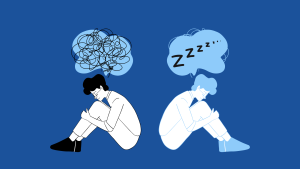Probiotics are a combination of live beneficial bacteria and/or yeasts that naturally live in your body. Bacteria is usually viewed in a negative light as something that makes you sick. However, you have two kinds of bacteria constantly in and on your body — good bacteria and bad bacteria. Probiotics are made up of good bacteria that help keep your body healthy and working well. This good bacteria helps you in many ways, including fighting off bad bacteria when you have too much of it, and helping you feel better.
Probiotics are part of a larger picture concerning bacteria and your body — your microbiome. You have trillions of microbes on and in your body. These microbes are a combination of:
- Bacteria
- Fungi (including yeasts)
- Viruses
- Protozoa
For a microbe to be called a probiotic, it must have several characteristics. These include being able to:
- Be isolated from a human
- Survive in your intestine after ingestion (being eaten)
- Have a proven benefit to you
- Be safely consumed
Though the most common place linked to beneficial microbes is your gut (mostly large intestines), you have several locations in and on your body that host good microbes. These locations are in contact with the “outside world” and include your:
- Gut
- Mouth
- Vagina
- Urinary tract
- Skin
- Lungs
The main job of probiotics, or good bacteria, is to maintain a healthy balance in your body. Think of it as keeping your body neutral. When you are sick, bad bacteria enter your body and increase in number. This knocks your body out of balance. Good bacteria work to fight off the bad bacteria and restore the balance within your body, making you feel better.
Good bacteria keep you healthy by supporting your immune function and controlling inflammation. Certain types of good bacteria can also:
- Help your body digest food.
- Keep bad bacteria from getting out of control and making you sick.
- Create vitamins.
- Help support the cells that line your gut to prevent bad bacteria that you may have consumed (through food or drinks) from entering your blood.
- Breakdown and absorb medications.
Eating a well-balanced diet rich in fiber every day helps to keep the number of good bacteria at proper levels.
There is currently a large amount of research happening around the idea of what probiotics can do for your body, and researchers are still working to find definitive answers about how probiotics can help with various conditions.
Some of the conditions that might be helped by increasing the number of probiotics in your body (through food or supplements) include:
- Diarrhea (both diarrhea caused by antibiotics and from Clostridioides difficile (C. diff) infection).
- Constipation.
- Inflammatory bowel disease (IBD).
- Irritable bowel syndrome (IBS).
- Yeast infections.
- Urinary tract infections.
- Gum disease.
- Lactose intolerance.
- Eczema (atopic dermatitis).
- Upper respiratory infections (ear infections, common cold, sinusitis).
- Sepsis (specifically in infants).
Recent research suggested that probiotics can do more than improve your gut health. They also may indirectly enhance your brain, too.
Research shows that the gut and brain are connected. The two are linked through biochemical signaling between the nervous system in the digestive tract. The gut has been called a “second brain” because it produces many of the same neurotransmitters as the brain does, like serotonin and dopamine, all of which play a key role in regulating mood. In fact, it is estimated that 90% of serotonin is made in the digestive tract. While it could be suggested that improving gut health can lead to a subsequent positive effect on the brain, more research has to be done to confirm this. Despite so, some research has found that probiotics may help boost mood and cognitive function and lower stress and anxiety.
You can increase the amount of good microbes in your body through foods, drinks, and supplements. You may already have certain foods in your daily diet that contain probiotics. Fermented foods in particular (yogurt and pickles, for example) are home to a host of good bacteria that benefit your body. There are also fermented drinks that introduce extra probiotics into your diet.
Apart from food, you can add probiotics to your diet through dietary supplements. These aren’t drugs, so they do not need to be approved by the Federal Drug Administration (FDA). It’s important that you always talk to your healthcare provider before starting any kind of supplement or major change to your diet.





